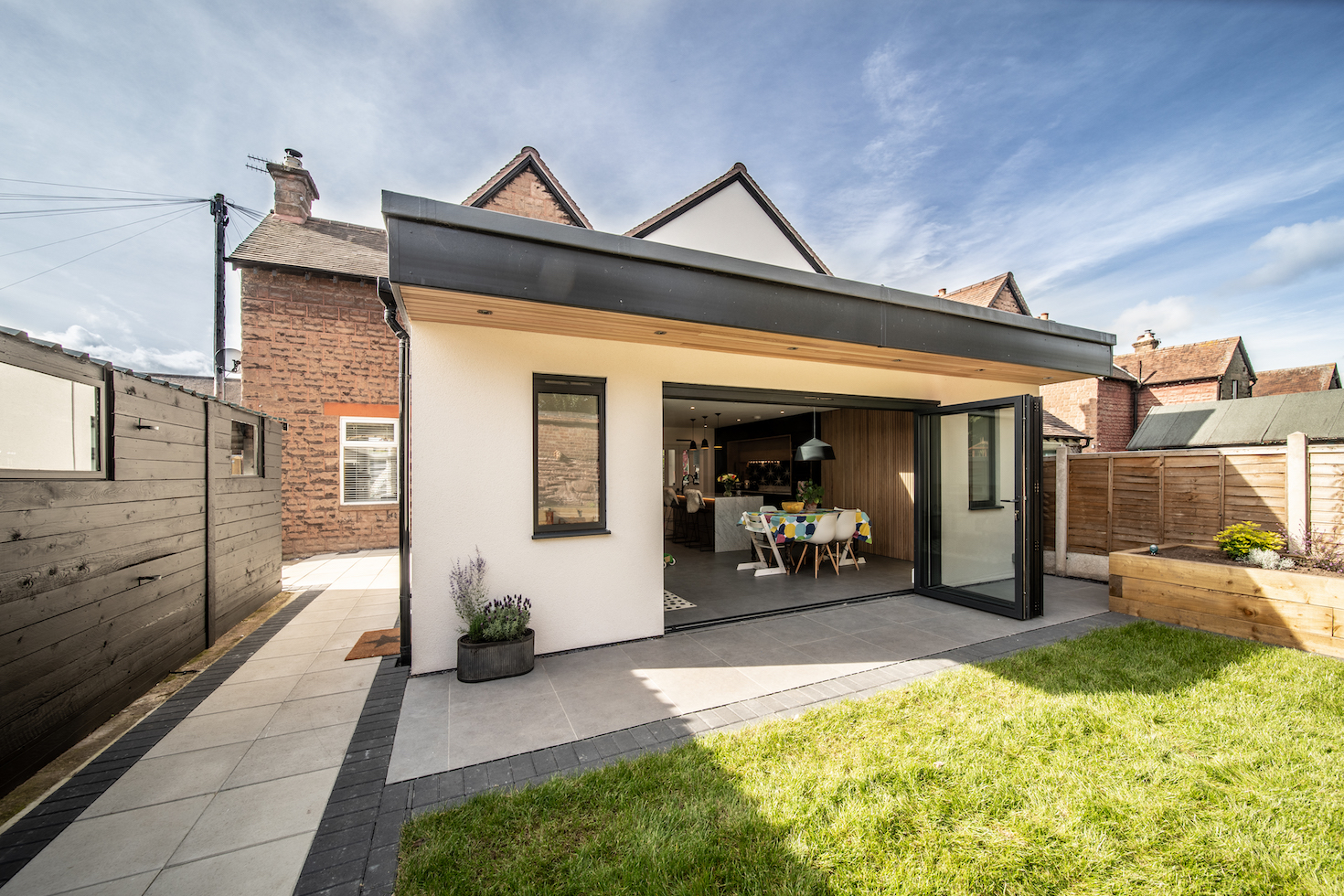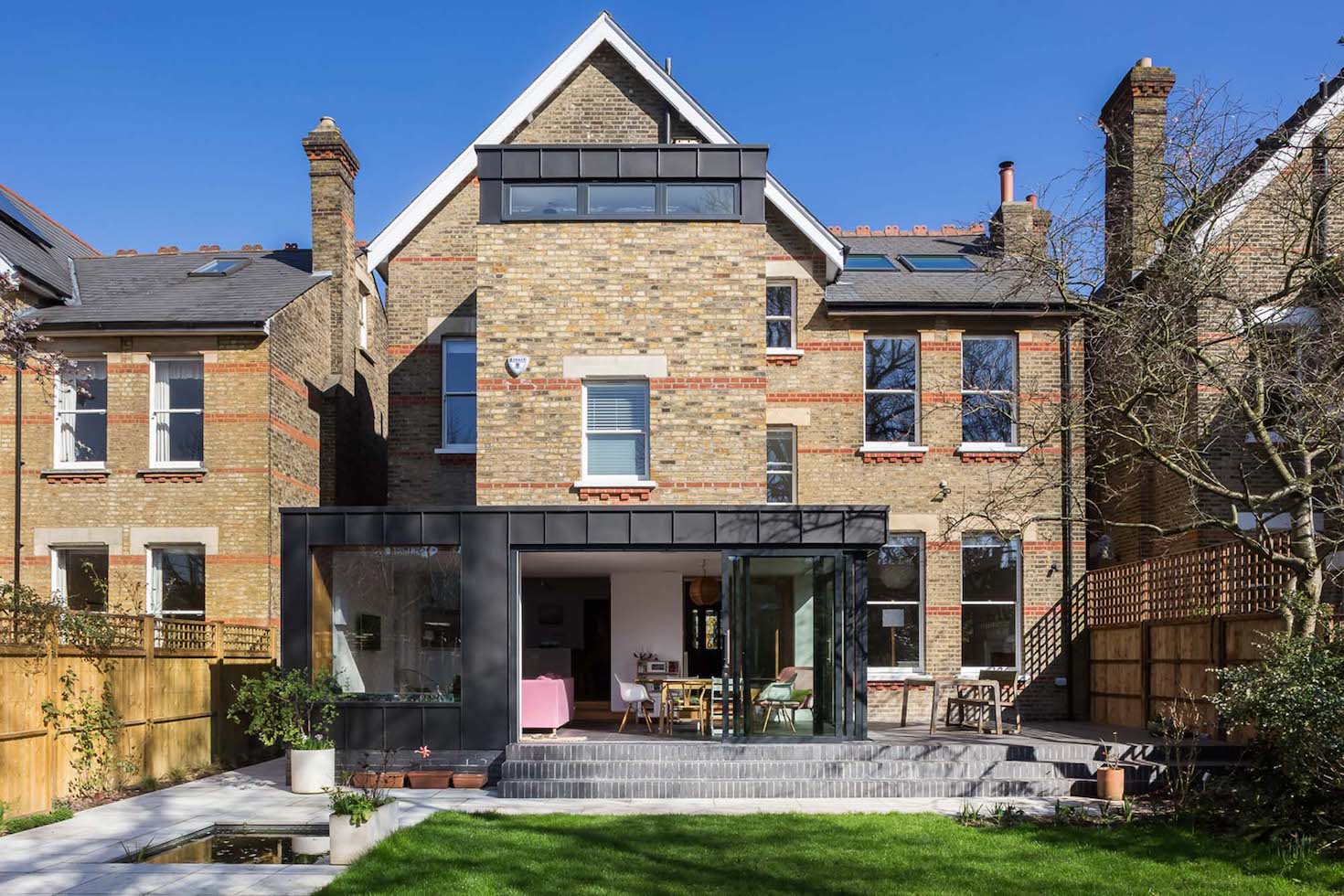5 Things You Should Never do When Extending Your Home
About to embark on a house extension? Exciting times — just be sure to avoid these common mistakes if you want the project to run smoothly

Building an extension is the perfect way to increase your living space, add value and remodel your existing layout. More and more people are choosing to extend rather than move at present, largely due to the current situation in the housing market which has seen house prices soar as buyers clamour to snap up what few properties come up for sale.
If you're re considering or about to embark upon an extension project, it is vital that you go in fully prepared and knowing what to expect — especially if you want the project to come in on budget and on time.
But, as this experienced home renovator knows, there's some rookie errors you can easily fall foul of when extending your home. Here's what you should never do when extending your home.
1. Assume You Don’t Need Planning Permission

While it is true that many extensions will fall under Permitted Development rights, don’t be tempted to assume this will be the case without first checking with your local planning department.
Even when your extension project will fall under permitted development it can often still be wise to apply for a Lawful Development Certificate (LDC).
By applying for LDC, you are ensuring that what you are doing to your house is lawful — plus, if you intend on selling your home, this will also act as proof that your extension was built to comply with the rules.
Bear in mind that an application for a Lawful Development Certificate takes around the same time as a planning application so do plan ahead. You will need to provide full details of your intended extension to the council and pay a fee — which will be 50% of whatever the corresponding Planning Permission application fee would be.
2. Forget About Your Neighbours

In order for your extension project to run without a hitch, it is always a good idea to keep your immediate neighbours informed of your plans and any likely disruption — it is good manners and likely to prevent squabbles that could be both stressful and time consuming.
If the extension is going to in any way affect an adjoining property you will need to adhere to the Party Wall Act.
Before any work begins on site (ideally a month of so in advance) you should serve the owners of any adjoining properties with a Party Wall Agreement, formal notice of your proposals ideally having first had an informal chat with them so that it doesn't come as a complete surprise.
With any luck your neighbours will be happy with your proposals and the project can get underway — they have 14 days to either provide written approval or rejection after being served notice.
If they reject your proposals you will be deemed to be in 'dispute' and the Act will inform you of the process involved to resolve it. You can read all about the process in our guide to Party Wall Agreements.
3. Not Think About Insurance Implications

If you embark on an extension project and fail to inform your existing house insurance provider, you will be breaching the terms of your policy and will be putting yourself at considerable risk should anything go wrong.
Speak to your provider about your options and consider taking out renovation insurance for complete peace of mind.
4. Forget to Contact Building Control

Even if your extension project doesn't require you to apply for planning permission you will still need to comply with the Building Regulations for extensions.
Your extension will need to meet a set of criteria, including (but not limited to) factors relating to energy performance, foundations, walls, electric and gas safety and fire safety.
You will need to inform your local Building Control department before work begins. You can either make a Full Plans Application, where detailed plans are submitted, checked and, hopefully, approved by the building inspector before work starts or serve a Building Notice Application.
This latter option is a way of confirming you will comply with the Building Regulations, but is best for small and simple projects. If subsequent inspections reveal anything that has not met the regulations work will have to be stopped and re-done.
5. Build Over a Public Sewer or Drain on the Quiet

If your planned extension is going to sit over a public sewer it might seem tempting to keep schtum about it — don't.
Firstly, should the water company realise what you have done, they could insist you stop work and even force you to take down the building over the sewer.
Secondly, it is usually quite possible to do the whole thing legally using a Build Over Agreement.
So, if your planned extension will be over or within three metres of a public sewer or lateral drain, let your water company know. They will inform you what to do in order that your work can proceed while ensuring the sewer doesn’t get damaged and that they can retain access to carry repair and maintenance work.
Get the Homebuilding & Renovating Newsletter
Bring your dream home to life with expert advice, how to guides and design inspiration. Sign up for our newsletter and get two free tickets to a Homebuilding & Renovating Show near you.
Natasha was Homebuilding & Renovating’s Associate Content Editor and was a member of the Homebuilding team for over two decades. In her role on Homebuilding & Renovating she imparted her knowledge on a wide range of renovation topics, from window condensation to renovating bathrooms, to removing walls and adding an extension. She continues to write for Homebuilding on these topics, and more. An experienced journalist and renovation expert, she also writes for a number of other homes titles, including Homes & Gardens and Ideal Homes. Over the years Natasha has renovated and carried out a side extension to a Victorian terrace. She is currently living in the rural Edwardian cottage she renovated and extended on a largely DIY basis, living on site for the duration of the project.

